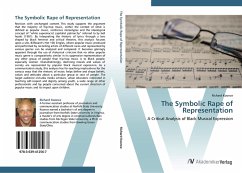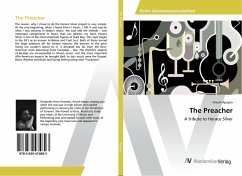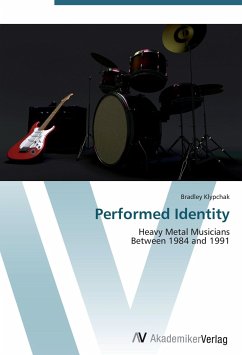
The Symbolic Rape of Representation
A Critical Analysis of Black Musical Expression
Versandkostenfrei!
Versandfertig in 1-2 Wochen
39,99 €
inkl. MwSt.

PAYBACK Punkte
20 °P sammeln!
Revision with unchanged content. This study supports the argument that the majority of hip-hop music, within the context of what is defined as popular music, reinforces stereotypes and the ideological concept of white supremacist capitalist patriarchy referred to by bell hooks (1981). By interpreting the rhetoric of lyrics through a lens shaped by black feminist and critical theories, this analysis focuses upon a site, Billboard s Hot 100 Singles, where popular music produced and per formed by recording artists of different races and represented by various genres can be analyzed and compared. ...
Revision with unchanged content. This study supports the argument that the majority of hip-hop music, within the context of what is defined as popular music, reinforces stereotypes and the ideological concept of white supremacist capitalist patriarchy referred to by bell hooks (1981). By interpreting the rhetoric of lyrics through a lens shaped by black feminist and critical theories, this analysis focuses upon a site, Billboard s Hot 100 Singles, where popular music produced and per formed by recording artists of different races and represented by various genres can be analyzed and compared. It becomes glaringly apparent through the use of rhetorical criticism that no other popular music genre is comparatively similar in its oppressive representation of any other group of people than hip-hop music is to Black people, especially women. Over whelmingly, declining morals and values of society are represented by popular black musical expression. As a communication study, this analysis has far-reaching implications for the various ways that the rhetoric of music helps define and shape beliefs, values and attitudes about a particular group or race of people. The target audience includes media scholars, urban educators interested in teaching self-respect and dignity among youth, a wide range of other professionals and lay people con cerned about the current direction of popular music and its impact upon children.












